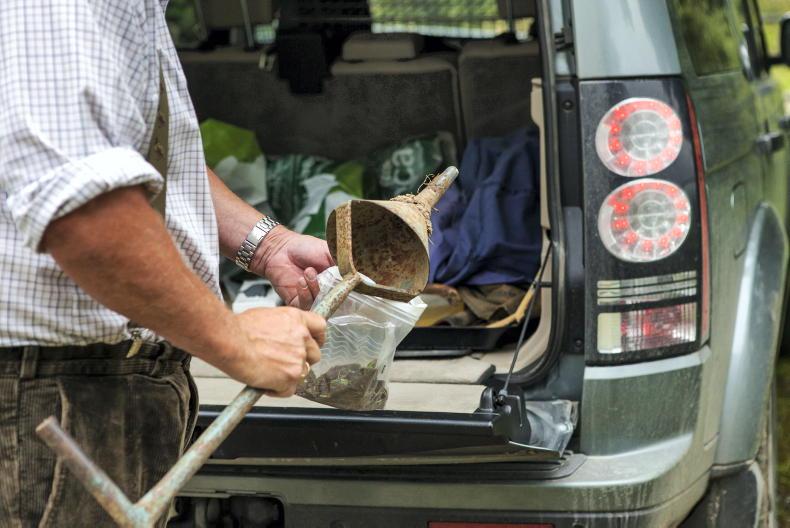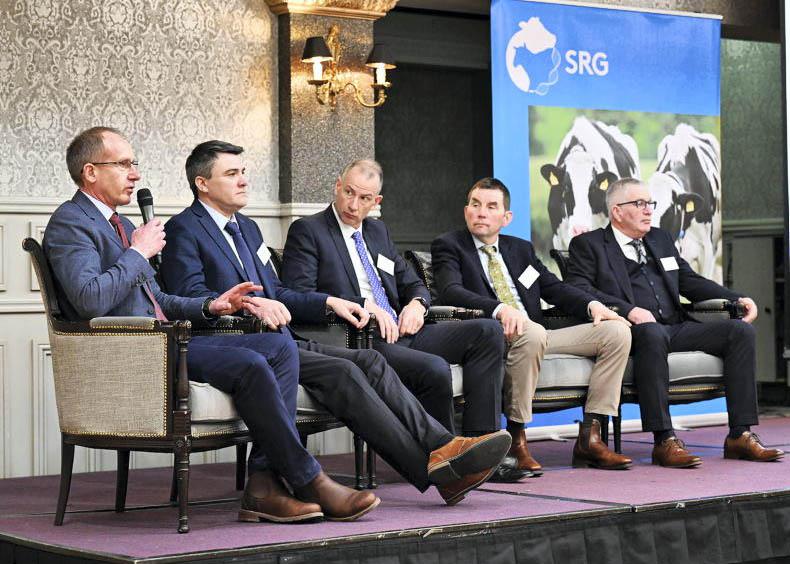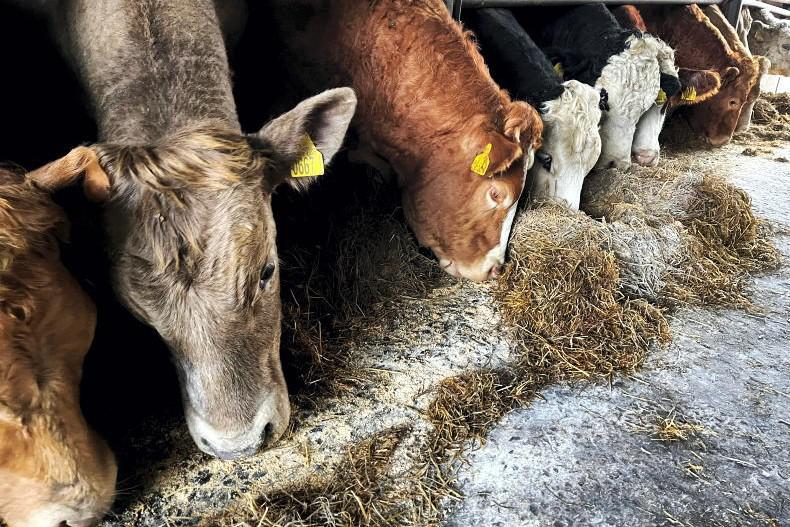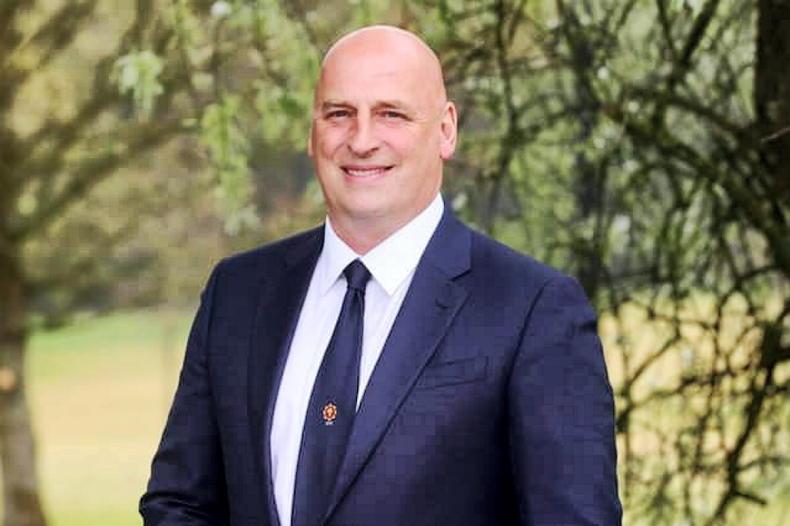The newly formed Executive at Stormont must deliver against the targets in the Climate Change Act passed by the last Assembly in 2022, even if the necessary policies are unpopular and unrealistic, Aileen Lawson from the Ulster Farmers’ Union (UFU) has said.
Addressing UFU members in Dungannon on Monday, Lawson pointed out that the 2050 net zero greenhouse gas (GHG) target set for NI cannot be amended, despite it going against advice from the UK Climate Change Committee (CCC).
Back in 2020 the CCC advised NI to set a 2050 target to reduce emissions by 82% as part of our fair contribution to UK net zero by that date. However, that advice was ignored by the majority of MLAs.
“The climate act will influence decisions right across government. The only way it can be changed is a new climate change bill and there is no appetite for that among our politicians. We are stuck with this in the short term,” suggested Lawson.
Included in the act is a duty on government to appoint a Climate Commissioner, establish a Just Transition Commission and also a Just Transition Fund for agriculture to help farmers lower their emissions. Getting each in place will be among the key tasks for the new Stormont Executive.
In terms of the Just Transition Fund for farmers, Lawson said “there hasn’t been a penny set aside as yet” and instead, some “concerning” indications that the money might ultimately come from that earmarked for future agriculture support.
Action plans
In June 2023, DAERA consulted on the first three five-year carbon budget cycles. That is to be followed by climate action plans which detail the policies and proposals each government department will implement to deliver against targets.
“We are expecting a consultation on climate action plans very soon, although it may be delayed because new ,inisters are in place,” said Lawson.
Livestock
In the first carbon budget cycle for 2023 to 2027, DAERA suggested that reductions in GHG emissions can be achieved by improvements in animal productivity.
But that still leaves CCC advice on how NI gets to net zero by 2050, which recommends by 2030 that there should be a 22% reduction in dairy cattle, 17% reduction in beef cattle and 18% reduction in sheep, pigs and poultry numbers.
“We have been set on a very difficult path. They are very challenging policies to deliver. It is up to the new Assembly to decide what they want to do with the CCC advice,” said Lawson.
Farmers made to ‘look like the bad guy’
The way national GHG emissions are accounted for is a concern and makes “agriculture always looks like the bad guy,” suggested Aileen Lawson from the UFU.
Those national inventory figures report gross emissions from farms and there is no account taken of the carbon sequestered in soils, trees or hedges, nor the emissions saved due to renewables on farms. The latest NI figures suggest nearly 28% of GHG emissions are from agriculture, with nearly two-thirds of those emissions from methane released by ruminant animals. How that methane is accounted for is also widely disputed, given it is part of a natural cycle and fundamentally different to carbon dioxide released from fossil fuel burning.
Calculators
However, farm carbon calculators use different data than the national inventory and most include sequestered carbon and energy generated by renewables. The calculators are “good at picking out efficient businesses,” said Lawson, who added that the data is owned by individual farmers and it is up to them who it can be shared with.
“If retailers want the data, there is an argument they should be paying for it,” she suggested. On the wider environmental issues impacting NI agriculture, she said farmers must take action to lower emissions, improve water quality etc. However, the key UFU message to politicians is to find the right balance between this green agenda and the need to produce food.
Read more
New NI beef scheme disrupts cattle supplies
Climate law taking NI Ag back 50 years
The newly formed Executive at Stormont must deliver against the targets in the Climate Change Act passed by the last Assembly in 2022, even if the necessary policies are unpopular and unrealistic, Aileen Lawson from the Ulster Farmers’ Union (UFU) has said.
Addressing UFU members in Dungannon on Monday, Lawson pointed out that the 2050 net zero greenhouse gas (GHG) target set for NI cannot be amended, despite it going against advice from the UK Climate Change Committee (CCC).
Back in 2020 the CCC advised NI to set a 2050 target to reduce emissions by 82% as part of our fair contribution to UK net zero by that date. However, that advice was ignored by the majority of MLAs.
“The climate act will influence decisions right across government. The only way it can be changed is a new climate change bill and there is no appetite for that among our politicians. We are stuck with this in the short term,” suggested Lawson.
Included in the act is a duty on government to appoint a Climate Commissioner, establish a Just Transition Commission and also a Just Transition Fund for agriculture to help farmers lower their emissions. Getting each in place will be among the key tasks for the new Stormont Executive.
In terms of the Just Transition Fund for farmers, Lawson said “there hasn’t been a penny set aside as yet” and instead, some “concerning” indications that the money might ultimately come from that earmarked for future agriculture support.
Action plans
In June 2023, DAERA consulted on the first three five-year carbon budget cycles. That is to be followed by climate action plans which detail the policies and proposals each government department will implement to deliver against targets.
“We are expecting a consultation on climate action plans very soon, although it may be delayed because new ,inisters are in place,” said Lawson.
Livestock
In the first carbon budget cycle for 2023 to 2027, DAERA suggested that reductions in GHG emissions can be achieved by improvements in animal productivity.
But that still leaves CCC advice on how NI gets to net zero by 2050, which recommends by 2030 that there should be a 22% reduction in dairy cattle, 17% reduction in beef cattle and 18% reduction in sheep, pigs and poultry numbers.
“We have been set on a very difficult path. They are very challenging policies to deliver. It is up to the new Assembly to decide what they want to do with the CCC advice,” said Lawson.
Farmers made to ‘look like the bad guy’
The way national GHG emissions are accounted for is a concern and makes “agriculture always looks like the bad guy,” suggested Aileen Lawson from the UFU.
Those national inventory figures report gross emissions from farms and there is no account taken of the carbon sequestered in soils, trees or hedges, nor the emissions saved due to renewables on farms. The latest NI figures suggest nearly 28% of GHG emissions are from agriculture, with nearly two-thirds of those emissions from methane released by ruminant animals. How that methane is accounted for is also widely disputed, given it is part of a natural cycle and fundamentally different to carbon dioxide released from fossil fuel burning.
Calculators
However, farm carbon calculators use different data than the national inventory and most include sequestered carbon and energy generated by renewables. The calculators are “good at picking out efficient businesses,” said Lawson, who added that the data is owned by individual farmers and it is up to them who it can be shared with.
“If retailers want the data, there is an argument they should be paying for it,” she suggested. On the wider environmental issues impacting NI agriculture, she said farmers must take action to lower emissions, improve water quality etc. However, the key UFU message to politicians is to find the right balance between this green agenda and the need to produce food.
Read more
New NI beef scheme disrupts cattle supplies
Climate law taking NI Ag back 50 years








SHARING OPTIONS